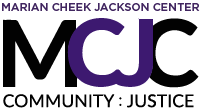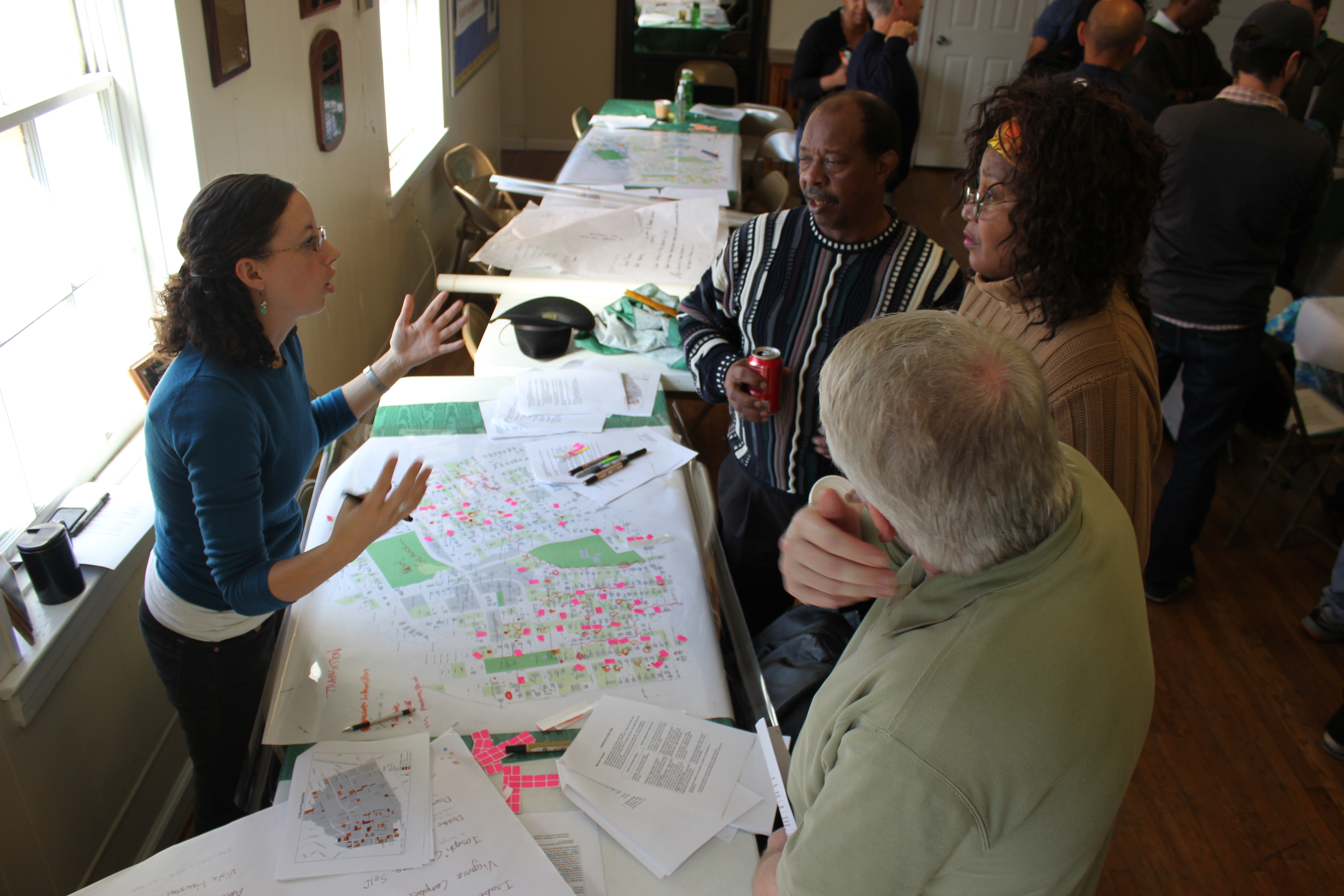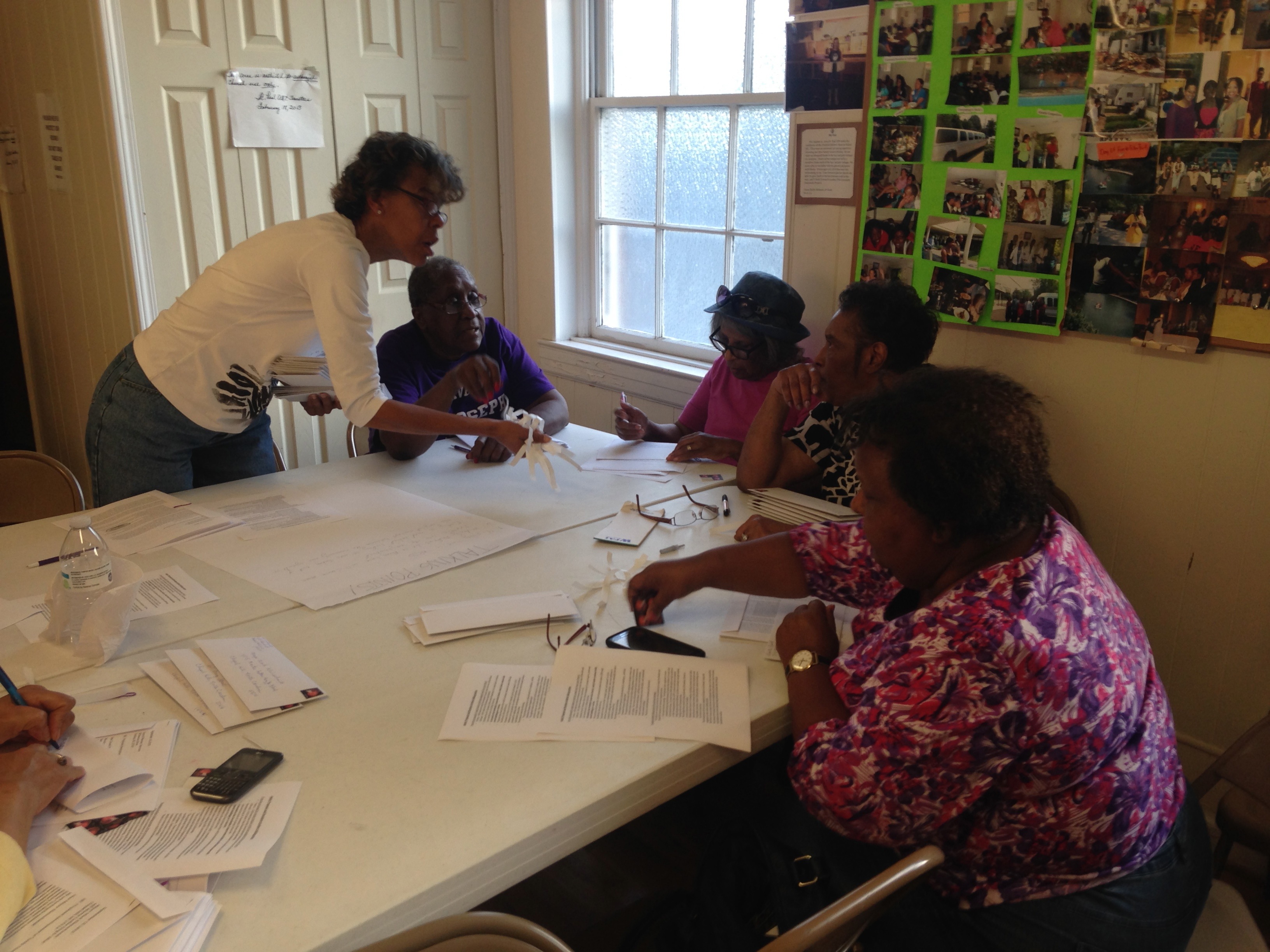The Jackson Center is committed to a model of self-determination we call community-first organizing.
Community-first organizing responds to challenges posed by external consultant-led processes and community-based approaches. All too often, planning efforts that rely on external consultants and specialized knowledges run up against the traditions, everyday practices, and the defining sense of place that are at the core of communities “for” whom consultants are ostensibly planning. The result can be a disempowered community group and plans that end up contested or shelved. Community-based processes may claim the community is in the driver’s seat and invite community members’ perspectives on wishes and needs. But to the extent that these are then turned over to “experts” to analyze and implement, they may similarly fail to engage and realize the deeply embedded values and visions that make for strong, vibrant neighborhoods and that make people proud to call themselves “community members.”
Community-first organizing flips the script. In community-first organizing, the community is first all the way: the primary consultant, the vetting base, the strategic planner. Community-first organizing shifts authority to the people whose neighborhoods are on the line: the community member is valued precisely for his/her history in the neighborhoods and investment in seeing community grow. We recognize that, in historically marginalized communities, perspectives have been sharpened on the razor’s edge of struggle. Community-first organizing is led by a bottom-up logic entrusted to those who know not only the history and culture of their neighborhoods but who have earned leadership and know policy in practice. We understand that our role is to facilitate and organize the full expression of community knowledge, wisdom, and vision.
We do this through a robust set of communication and organizing tools that brings neighbors and other stakeholders into active and realistic planning discussions focused on change that enhances community and regional goals. These include:
- Broad-based participation developed on the ground in direct communication with residents and stakeholders
- “Reverse consultancy” leadership
- Realistic “gives and gets” analysis
- Leadership by a direction-setting or “compass” group that remains accountable to community interests
- Building a dynamic infrastructure for ongoing review and implementation that can long exceed our active role
The Northside Compass Group is our primary community-first leadership group. This direction-setting group of neighbors from all across Northside develop neighborhood strategy, guide our community landbank, and lead efforts to preserve the future of Northside.


